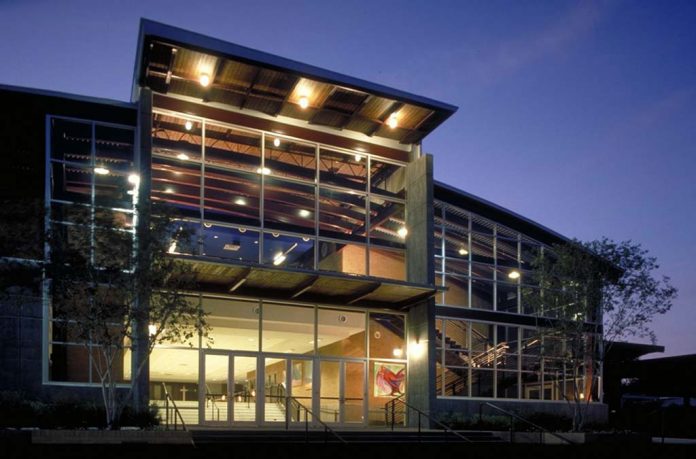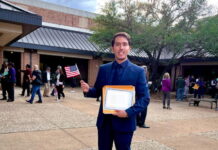As the bell rings to signify the start of parent teacher conferences, the slender English teacher shoves his round silver framed spectacles back onto his nose, opens the large mahogany door, and invites the middle aged Latino parents into the empty class room. Shy smiles barely show across the parents’ faces, and their eyes widen with a frozen look in nervousness. The teacher shoots out his right arm and spreads his palm wide in a greeting motion and offers the two a seat. As the conversation begins, the three continue to pass confused glances from one to another in hope that one of the other two adults can translate the conversation. The language barrier continues to divide the parent-teacher relationship and makes it difficult to focus on the student’s grade in the class.
Jesuit being such a diverse community with people coming from all around the DFW area, language barriers are beginning to widen the gap between the parents of students and the teachers. Jesuit continues to adapt their methods to better connect with students and the community. The newest service that Jesuit provides is “Translators/Interpreters for Others Language Service.”
The co-founder Erik Burrell explained, “This is one avenue where there was a barrier before; we can now work around and bring the new family into the fold of the Jesuit community. The program is going to help the cultural barrier as well for families whose parents are not from the United States and come from different backgrounds. Even if they understand the American culture, the high school culture is something that is different.”
This service is a partnership between Jesuit’s Diversity and Outreach and the Jesuit Women’s Auxiliary and provides written and verbal translation as well as a bridge to unfamiliar aspects of high school and the Jesuit culture. The program currently serves active families in the Jesuit community and helps with understanding the Profile of a Jesuit Graduate. The program started with just faculty members and the JWA organization but has now even spread to a group of students who are now working with the parents and families who need help.
Martha Salazar and Irma Cornejo, the JWA co-founders, said, “We currently have about 14 volunteer interpreters and translators, all past or current parents, who serve as such at important Jesuit events throughout the school year.”
Spanish is the primary language being served at the time being; however, the program is working to add other translators for different languages as well. The services provided a the translator include translating documents, contacting families, and assisting in parent-teacher and parent-counselor conferences. As diverse as the Jesuit community is, there are students who speak English as a second language and will speak another language at home, such as Vietnamese, Korean, and Japanese. These services are not limited and continue to expand to fill any need that arises.
JWA co-founders said that “our language service is looking to provide the potential for increased academic success for current students. It also allows further demonstration of Jesuit’s desire to assist in meeting the needs of the Jesuit community wherever they are found.”
Why not use “Google Translate” to translate the documents to different languages, one may ask? In the translating of the documents, the context of the message can get lost. Mr. Burrell says “Google Translate cannot understand the context of the message; thus, a different phrase or words will need to be used to convey the specific thing. Direct translation does not always work.”
This groundbreaking program will undoubtedly have a massive impact on the community, make sure to tune into The Roundup for its continual coverage.






